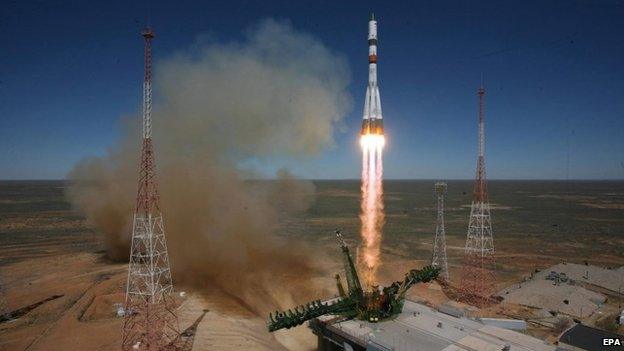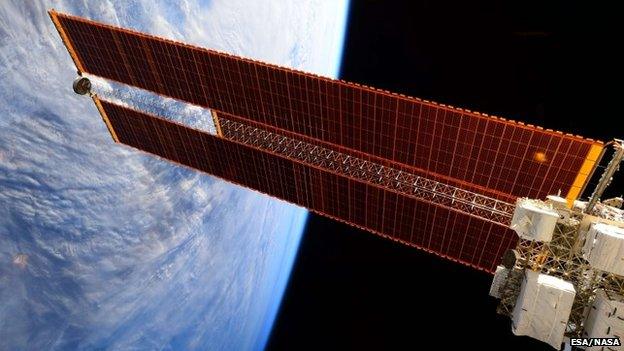Rogue Russian spacecraft burns up in Earth's atmosphere
- Published
Nasa released footage showing the spaceship spinning
The Russian space agency says that its out-of-control spacecraft has burnt up as it re-entered the Earth's atmosphere.
Re-entry was over the Pacific, it said, and only a few fragments were expected to hit the sea.
The unmanned cargo ship was launched from Kazakhstan on 28 April, but control was lost soon afterwards.
The Progress M-27M was carrying more than three tonnes of supplies to the International Space Station.
Russian space agency Roscosmos said: "The Progress M-27M spacecraft ceased to exist at 05:04 Moscow time (02:04 GMT) on 8 May 2015. It entered the atmosphere... over the central part of the Pacific Ocean."
Progress was to deliver food, water, fuel, oxygen and clothing to the crew of six people on the ISS, which orbits about 420km (250 miles) above Earth.

The Progress M-27M cargo ship launched from Kazakhstan last week with three tonnes of equipment on board

Progress had been due to deliver fuel, food and supplies to the International Space Station
But after a communications failure, it began spiralling out of control.
Since then, it has been slowly descending, and orbiting Earth in a pattern, external that takes it over the eastern United States, Colombia, Brazil and Indonesia.
The capsules were designed to burn up in the atmosphere after delivering their cargo.
A special commission has been set up in Russia to investigate why Progress was lost.
In 2011, one of its predecessors was destroyed when it crashed soon after take-off in Siberia.
Even after Progress' loss, the astronauts have enough supplies to keep them going until the next expected delivery on 19 June.
A Roscosmos spokesman told Reuters that the loss was valued at 2.59 billion roubles ($50.7m; £32.9m).